In a world where corporate influence has the power to shape the very fabric of our lives, Evil Corporations stands out as one of the most notorious examples. We’re not just talking about corporate greed; we’re talking about very real companies that are the epitome of evil, companies that have taken our trust and thoroughly manipulated it with cold-hearted disregard and perfect PR.
On today’s list, we’re taking a trip through the dark underbelly of the business world; from deceptive business practices and blatant exploitation to environmental devastation and widespread disregard for human rights, these corporations have earned their place in the annals of infamy.
Here are 25 Most Evil Corporations in the World

FIFA
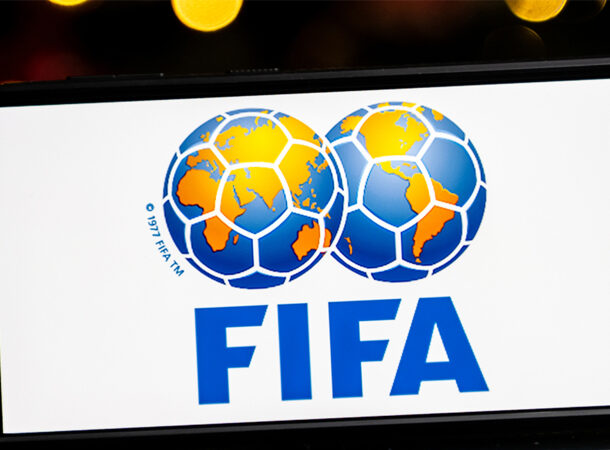 https://www.hrw.org/news/2022/11/14/qatar-rights-abuses-stain-fifa-world-cup
https://www.hrw.org/news/2022/11/14/qatar-rights-abuses-stain-fifa-world-cup FIFA scandals and controversies are old news in the sports world, thanks to the organization’s legendary reputation for corruption. The culmination of FIFA’s bribing history happened in 2015 when 18 members of the organization were charged with wire fraud and money laundering. FIFA’s control over the World Cup and its selection of host countries has also unfailingly sparked controversy, but the 2022 games in Qatar were especially noteworthy. Qatar’s alleged mistreatment of migrant workers and human rights violations brought further scrutiny to FIFA, highlighting the systemic abuses of power within the organization.
The Coca-Cola Company
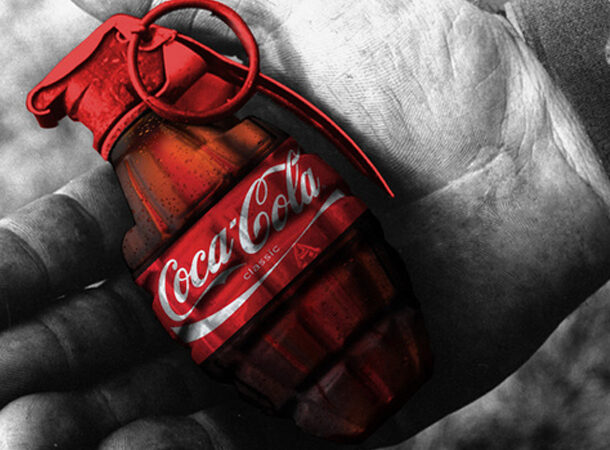 https://harbert.auburn.edu/binaries/documents/center-for-ethical-organizational-cultures/cases/coca-cola.pdf
https://harbert.auburn.edu/binaries/documents/center-for-ethical-organizational-cultures/cases/coca-cola.pdf The Coca-Cola Company’s unethical activities have made headlines numerous times over the years. Accusations have included issues around their product safety, anti-competitiveness, racial discrimination, union worker intimidation, pollution, and health concerns. One specific criticism relates to the company’s water usage practices, especially in parts of the world that are already facing droughts or have issues with water scarcity. Activists and communities have argued that Coca-Cola’s bottling factories waste a lot of water, causing local shortages and environmental damage. These controversies have spurred protests and legal challenges, shedding light on the company’s impact on ecosystems and communities dependent on those water sources, raising serious questions about their business practices and societal impact.
Cloudflare
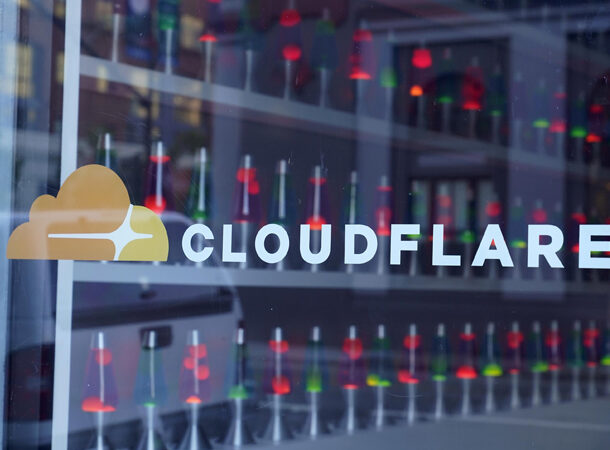 https://www.nytimes.com/interactive/2019/12/22/us/child-sex-abuse-websites-shut-down.html
https://www.nytimes.com/interactive/2019/12/22/us/child-sex-abuse-websites-shut-down.html Cloudflare, an internet infrastructure company, plays a vital role in providing essential services for content delivery and cybersecurity. This includes safeguarding websites against automated DDoS attacks, which are crucial for proper functioning. Recently, the company has come under scrutiny for its approach to content moderation. A specific and concerning instance involves using Cloudflare’s cyberattack-prevention services by an operator of websites featuring explicit child pornography. Using Cloudflare’s services, the operator could conceal their internet addresses and avoid detection. Although Cloudflare generally declines to assume responsibility for the content on the websites it protects, except for a few exceptions like 8chan, their practices have now raised very valid concerns regarding the company’s potential involvement when it comes to facilitating the distribution of harmful and dangerous material.
Blackwater Worldwide (Academi)
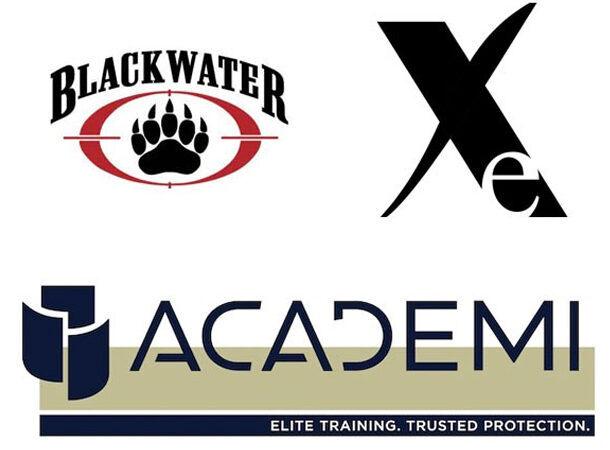 https://tidingsmedia.org/blog/nisour-square-massacre
https://tidingsmedia.org/blog/nisour-square-massacre Only one of the companies on this list has been accused of committing a massacre. Not a leak or spill but an actual massacre. Blackwater Worldwide, a private military company, deployed mercenaries to conflict zones worldwide. On September 16, 2007, Blackwater’s mercenaries were involved in the Nisour Square Massacre in Baghdad, which resulted in the deaths of 17 unarmed civilians. During an escort mission for a US State Department convoy, the mercenaries believed oncoming vehicles to be a potential threat. They opened fire and, in the process, killed 17 unarmed men, women, and children. The attack injured 20 others and caused an international outcry, further straining the already tense relationship between the US and Iraq. Four of the perpetrators faced manslaughter charges, leading the company to scramble and rebrand itself multiple times, eventually settling on Academi in 2011.
Rio Tinto
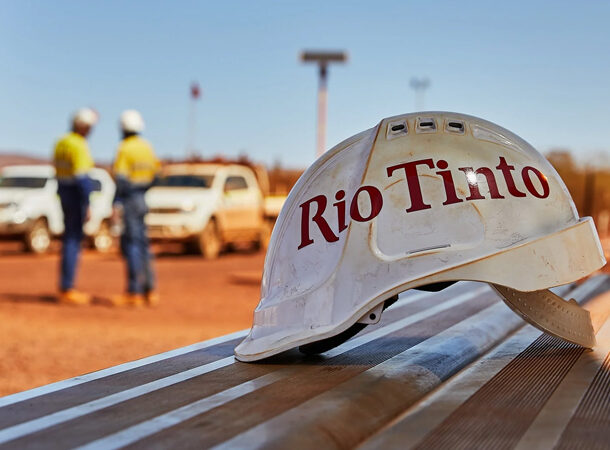 https://www.reuters.com/world/asia-pacific/aboriginal-group-says-committed-improving-ties-with-rio-year-after-cave-disaster-2021-05-18/#:~:text=Rio%20Tinto%20destroyed%2046%2C000%2Dyear,evidence%20of%20continual%20human%20habitation
https://www.reuters.com/world/asia-pacific/aboriginal-group-says-committed-improving-ties-with-rio-year-after-cave-disaster-2021-05-18/#:~:text=Rio%20Tinto%20destroyed%2046%2C000%2Dyear,evidence%20of%20continual%20human%20habitation You may not be familiar with Rio Tinto, and if you are, we’re very sorry. Evil tends to thrive when it operates unrecognized and overlooked. Rio Tinto is an Australian mining company known for its troubling penchant for mining on Aboriginal land. In 2020, the company detonated explosives in the Juukan Gorge, obliterating ancient traditional rock shelters that held immense cultural significance to the Puutu Kunti Kurrama and Pinikura peoples. These rock shelters had a history spanning over 46,000 years. What makes this even more unpalatable is that the company was well aware of the site’s importance and went ahead with the destruction nonetheless.
Goldman Sachs
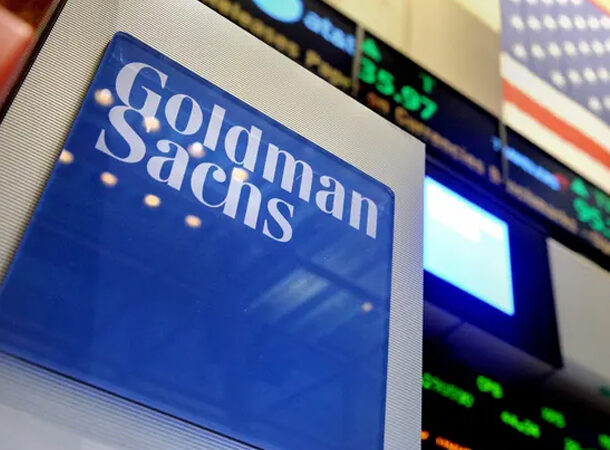 https://medium.com/yardcouch-com/goldman-sachs-the-most-evil-bank-in-the-world-681bb5b37361
https://medium.com/yardcouch-com/goldman-sachs-the-most-evil-bank-in-the-world-681bb5b37361 Cartels and Goldman Sachs share a similar business model. They both lack ethics, empathy, and moral values and have members who deserve hellish consequences, including life imprisonment. If you don’t recall the 2008 housing bubble and the subsequent government bailout with billions of dollars, trust us, you still suffer from its consequences. Goldman Sachs employees, motivated by profit, intentionally misled their investors and sold a considerable number of subprime mortgages. These mortgages were of lower quality and carried higher risks, yet they were bundled together and sold to investors as securities, eventually leading to the housing market’s collapse. The consequences were devastating and caused a widespread crisis in the US housing market.
Bre-X
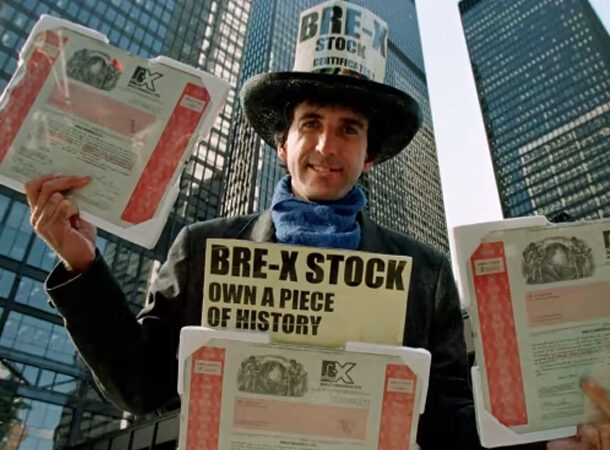 https://calgaryherald.com/news/local-news/bre-x-the-real-story-and-scandal-that-inspired-the-movie-gold
https://calgaryherald.com/news/local-news/bre-x-the-real-story-and-scandal-that-inspired-the-movie-gold The Bre-X Mineral Company found itself at the epicenter of a massive mining scandal in 1995 after they declared a significant gold discovery in Indonesia. This news sent their stock prices skyrocketing, but the situation quickly took a turn for the worse when it was revealed that Bre-X’s claim was entirely false. The subsequent events unfolded like a gripping political thriller, with reports of a supposed Bre-X geologist named “Michael de Guzman” allegedly jumping out of a helicopter. However, some sources claimed it was a staged incident created with a stolen corpse, made to appear as a deliberate act of self-destruction. As the saga continued, it involved insider trading, lawsuits, and even an armed home invasion, making it one of the wildest sequences of events in the history of Canadian corporate affairs.
Apple
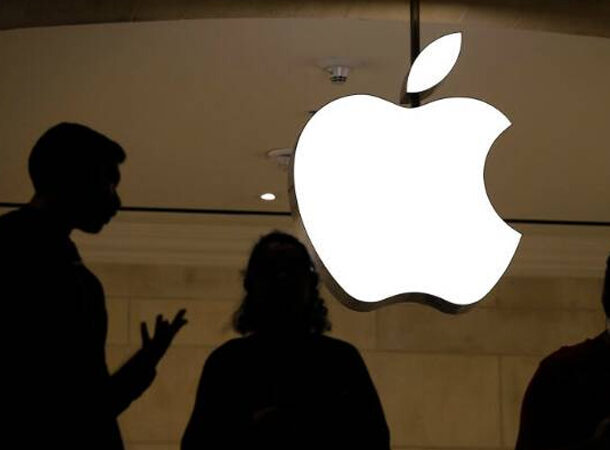 https://www.bbc.com/news/business-30532463
https://www.bbc.com/news/business-30532463 Whether you love or hate Apple, they undeniably hold a position of immense power and is one of the world’s leading tech companies. However, their business practices are concerning. From violating health and environmental regulations to leveraging its market dominance for monopolistic advantages, Apple’s moral character is definitely questionable. As recently as 2020, Apple received a $27 million fine for slowing down older iPhone models without sufficient consumer disclosure. Additionally, Apple has a track record of mistreating and underpaying its employees. Alarming reports regarding Chinese factory workers enduring brutal conditions, working excessive hours without breaks, and even reports of underage labor have emerged. Their actions raise serious concerns about their ethical outlook, leaving us wondering about the exact extent of their corporate transgressions.
Palantir Technologies
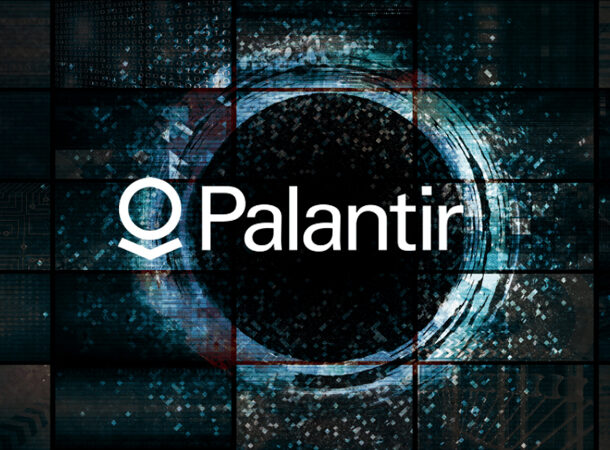 https://www.washingtonpost.com/business/2019/08/22/war-inside-palantir-data-mining-firms-ties-ice-under-attack-by-employees/
https://www.washingtonpost.com/business/2019/08/22/war-inside-palantir-data-mining-firms-ties-ice-under-attack-by-employees/ Major international companies can dirty their fingers in more than just environmental disasters. Palantir Technologies, a firm specializing in public data analysis software, has faced criticism and severe scrutiny due to its connections with the US Department of Homeland Security and its association with Immigration and Customs Enforcement (ICE). Despite Palantir’s CEO, Alex Karp, downplaying the company’s role in deportation issues, Amnesty International highlighted the company’s insufficient research on human rights violations during its 2020 partnership with ICE. These findings raise definite concerns about Palantir’s moral practices and impact on human rights.
Massey Energy
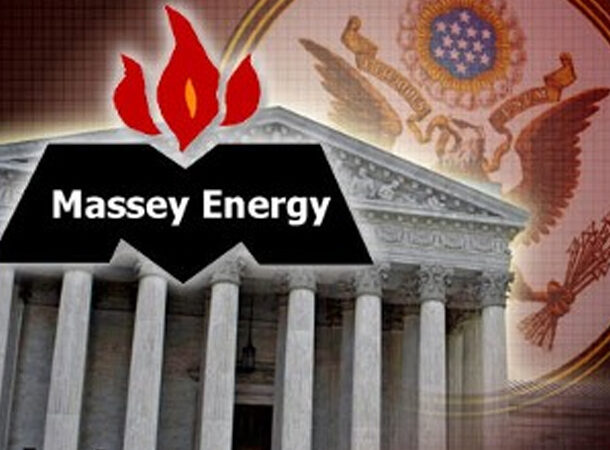 https://www.onlinesafetytrainer.com/upper-big-branch-mine-disaster-of-2010/
https://www.onlinesafetytrainer.com/upper-big-branch-mine-disaster-of-2010/ The coal industry remains a topic of concern when it comes to the U.S. national economy, with a troubling history of misconduct. Massey Energy Company, once prominent in states like Kentucky and West Virginia, achieved their success at a high price. The Upper Big Branch Mine disaster, which happened in 2010 and claimed the lives of 29 miners, showcased Massey’s overall disregard for their workers and their practice of prioritizing production over safety. Following the disaster, Massey faced a hefty fine of ten million dollars from the Mine Safety and Health Administration and was eventually sold off to Alpha Natural Resources – which didn’t make the problem go away; it just gave it another name.
Meta (Facebook)
 https://www.reuters.com/article/us-facebook-cambridge-analytica-idUSKBN1GW1SG
https://www.reuters.com/article/us-facebook-cambridge-analytica-idUSKBN1GW1SG As a social media platform with over 2.85 billion users, Facebook, or Meta, receives its fair share of criticism on a daily basis, particularly when it comes to their customer satisfaction versus those on other social media platforms. Privacy issues, mismanagement of user data, expansion without adequate language expertise, and the appeasement of conservative critics are just a few examples of their questionable business practices. Among the worst scandals involving Facebook is their support of Cambridge Analytica, which spread false news and attempted to influence the 2016 presidential election. These controversies have led to ongoing scrutiny, raising concerns about Facebook’s morality and influence on the global internet ecosystem.
LiveRamp (formerly Acxiom)
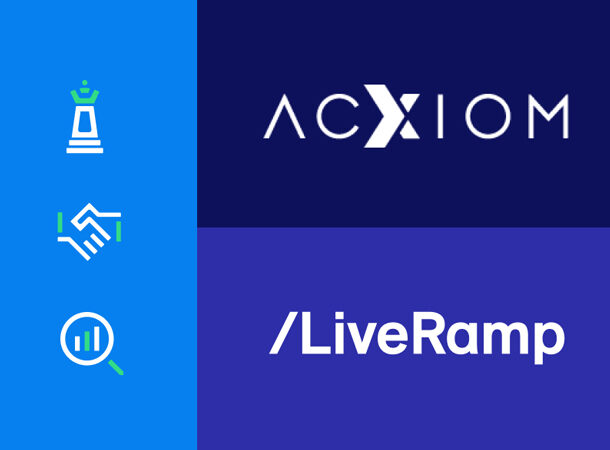 https://techcrunch.com/2018/06/06/cambridge-analyticas-nix-said-it-licensed-millions-of-data-points-from-axciom-experian-infogroup-to-target-us-voters/
https://techcrunch.com/2018/06/06/cambridge-analyticas-nix-said-it-licensed-millions-of-data-points-from-axciom-experian-infogroup-to-target-us-voters/ While we’re on the subject of Facebook, a company by the name of LiveRamp plays a crucial role in the thriving $100 billion online advertising industry by gathering personal information from millions of individuals. They collect data from home values, credit card transactions, and health histories. Ever wonder why you keep encountering those pesky shoe ads across the web, even on this very page? Thank LiveRamp.
In 2018, Cambridge Analytica, the disgraced political consulting firm, attempted to deflect accusations of improperly obtaining Facebook user data by claiming that the data was useless and relied on datasets purchased from Acxiom and other data brokers, not from Facebook. Whether we believe them or not, the intimate data collection that led to their controversy pales compared to what companies like Acxiom use daily to target consumers with advertisements.
Huawei
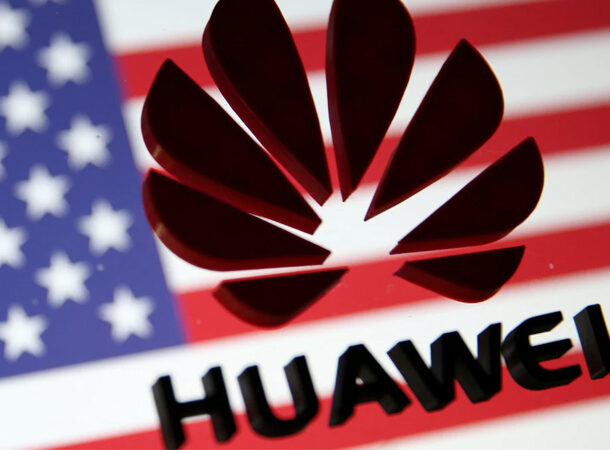 https://www.cfr.org/backgrounder/chinas-huawei-threat-us-national-security
https://www.cfr.org/backgrounder/chinas-huawei-threat-us-national-security Huawei, recognized as the leading telecommunications equipment provider and a frontrunner in 5G technology, is slowly establishing its dominance in the global telecommunications industry. However, the company continues to face scepticism and a lack of trust, particularly in Western countries.
The United States specifically has been incredibly suspicious, believing that Huawei’s close ties to the Chinese government could threaten national security. In 2019 the Trump administration blacklisted the company, citing concerns about foreign adversaries exploiting vulnerabilities in US information and communication technology infrastructure. Although the ban was lifted a month later, Huawei has faced additional accusations, such as collaborating with African governments to spy on political opponents, highlighting the ongoing scrutiny around Huawei’s activities.
Philip Morris (Altria Group)
 https://www.tobaccofreekids.org/what-we-do/industry-watch/doj
https://www.tobaccofreekids.org/what-we-do/industry-watch/doj Marketing toxic and cancer-causing chemicals to young people is a heinous act. Philip Morris faced accusations of employing tactics like colorful packaging, artificial flavors, and targeted advertisements to entice children into using their products.
Apart from actively encouraging smoking, the company demonstrated a disturbing tendency to de-emphasize the risks associated with smoking and the addictive properties of nicotine. As such, the United States Government initiated legal action against the corporation, lodging a lawsuit for breaching the Racketeer Influenced and Corrupt Organizations Act or RICO Act. Legislation reserved for handling organized criminal activities that had taken down numerous mobsters over the years.
ExxonMobil
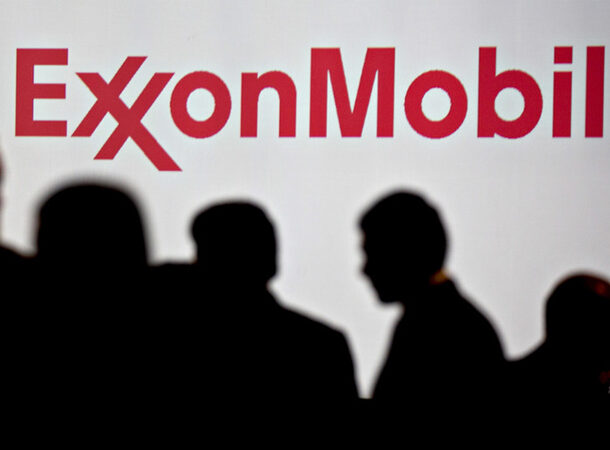 https://www.scientificamerican.com/article/exxon-knew-about-climate-change-almost-40-years-ago/
https://www.scientificamerican.com/article/exxon-knew-about-climate-change-almost-40-years-ago/ In recent years, climate change emerged as a critical global issue of considerable magnitude. At first glance, ExxonMobil’s engagement in researching the matter during the 1970s and ’80s seemed admirable. However, their true intentions turned out to be far from noble. Despite being aware of the environmental impact caused by their activities, ExxonMobil allegedly supplied funding to climate change denial groups and sabotaged scientific evidence to protect their profits obtained from fossil fuel extraction. Additionally, the company has faced accusations of violating human rights in its operating regions, specifically concerning the treatment of local communities and indigenous populations affected by oil extraction.
Monsanto (Bayer)
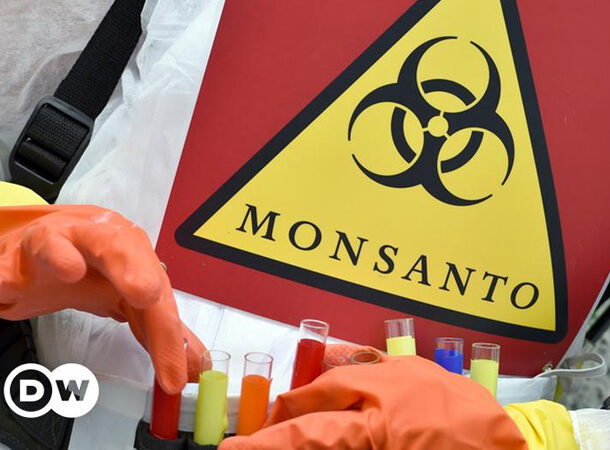 https://www.sciencedirect.com/science/article/abs/pii/S0048733321000925
https://www.sciencedirect.com/science/article/abs/pii/S0048733321000925 Monsanto had no trouble finding its way onto today’s list due to several concerns when it comes to its business practices and products. Monsanto is synonymous with very aggressive patenting and promotion of GMOs, which limits farmers’ autonomy. The company’s production of glyphosate-based herbicides has raised environmental concerns, including harm to ecosystems and pollinators. Lawsuits against farmers for patent infringement have resulted in legal battles and financial hardships. Critics also highlight the adverse effects of Monsanto’s agricultural practices on biodiversity and soil health. Additionally, the allegations of Monsanto’s undue influence on regulatory agencies and biased scientific studies place them at number 10.
Microsoft
 https://www.bbc.com/news/technology-48555149
https://www.bbc.com/news/technology-48555149 There’s no question about it, Microsoft is a technological giant. But did you know the company is often called the “Evil Empire”? The company has faced years of humiliation from antitrust and consumer protection authorities. In April 2019, it was revealed that Microsoft’s research branch in China collaborated with the country’s National University of Defense Technology, a military-controlled institution, on three AI research papers. These papers included topics like facial recognition. Yes, we’re not joking. The company created a public database of over 10 million images of 100,000 writers, activists, policymakers, and other notable figures. This database was used to train facial recognition systems for Chinese companies involved in surveillance technology. While Microsoft eventually deleted the database amid criticism, the question remains: how long before it is used somewhere else?
Enron
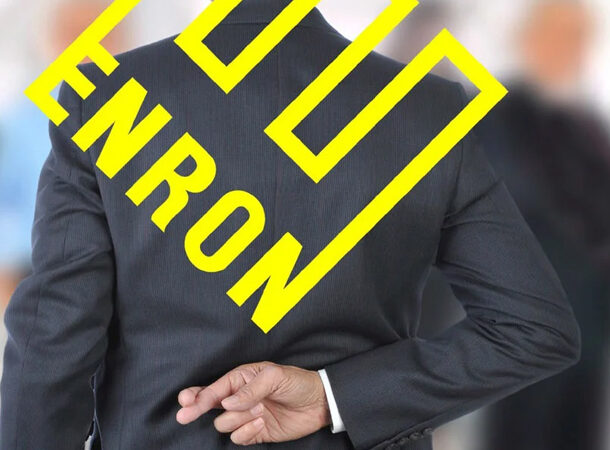 https://content.time.com/time/specials/packages/article/0,28804,1903155_1903156_1903186,00.html
https://content.time.com/time/specials/packages/article/0,28804,1903155_1903156_1903186,00.html The Enron Scandal is one of the most significant financial scandals in the world’s history, leaving a lasting impact on both Wall Street and international markets. The former energy company staged a massive fraud scheme, artificially inflating its revenue by billions of dollars. The fallout included indictments, evidence tampering, and subsequent prison sentences. Ordinary employees suffered the consequences, too, as their 401k plans, meant to secure their futures, were exploited and mismanaged. To make matters worse, the company’s CEO, Kenneth Lay, destroyed evidence during the investigation – and was caught doing it. The Enron Scandal continues to represent a shocking betrayal of trust and a profoundly shameful moment in the US’s corporate history.
BP
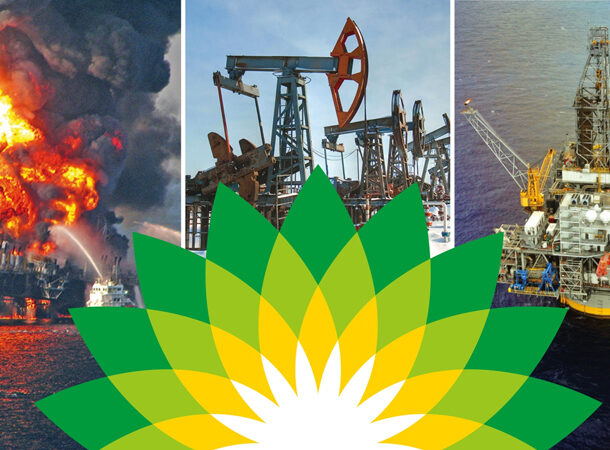 https://www.epa.gov/enforcement/deepwater-horizon-bp-gulf-mexico-oil-spill
https://www.epa.gov/enforcement/deepwater-horizon-bp-gulf-mexico-oil-spill BP has proved its capacity to survive even the most severe environmental catastrophes. In 2005, BP’s Texas City Refinery Explosion claimed the lives of 15 workers and left nearly 200 others injured. Shortly after that 2006, the Prudhoe Bay oil spill occurred, during which more than 200,000 gallons of oil were released into the Arctic Ocean. BP faced further scrutiny five years later as multiple hazardous chemicals were released from the same Texas City refinery. However, the environmental destruction didn’t end there. Have you ever seen the movie Deepwater Horizon? The movie highlighted the events that led to the largest environmental disaster in history, where BP released a staggering 210 million gallons of oil into the Gulf of Mexico. The disaster resulted in widespread devastation to coastlines, wetlands, and a multitude of marine species.
ByteDance
 https://www.digitaltrends.com/mobile/bytedance-hides-deepfake-feature-in-tiktok
https://www.digitaltrends.com/mobile/bytedance-hides-deepfake-feature-in-tiktok ByteDance, a Beijing-based social media startup, has faced scrutiny in China and the U.S. for its operations. In China, their news app raises censorship concerns, while in the U.S., the company is under scrutiny for its app TikTok, a favorite of American teens for lip-synching, short-form nonsense, and establishing brands. It has become common for major social media platforms to steer clear of deepfakes because the technology can be abused to promote revenge porn and disinformation. But not ByteDance: A market research company recently discovered unreleased code inside TikTok and Douyin that allows users to make deepfakes. Beyond geopolitical concerns, TikTok’s impact and addictive nature have drawn attention and sparked discussions about its effects on users.
Union Carbide
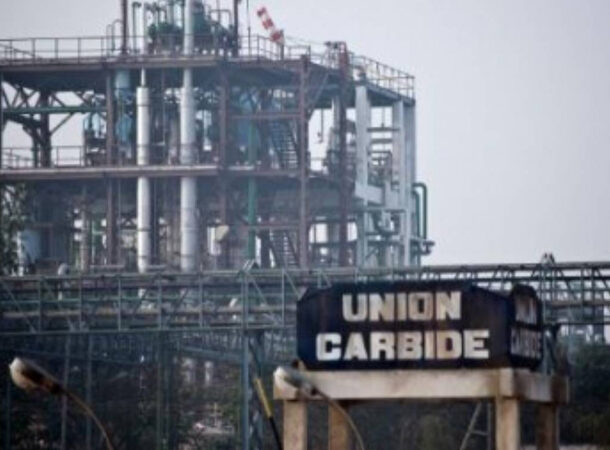 https://www.theatlantic.com/photo/2014/12/bhopal-the-worlds-worst-industrial-disaster-30-years-later/100864/
https://www.theatlantic.com/photo/2014/12/bhopal-the-worlds-worst-industrial-disaster-30-years-later/100864/ The 1984 toxic gas leak at Union Carbide’s pesticide plant in Bhopal, India, resulted in the loss of thousands of lives and lasting health problems for the survivors. The disaster, caused by inadequate safety measures, insufficient maintenance, and negligence, remains the worst industrial catastrophe in history. Union Carbide faced criticism for its slow response, insufficient compensation to victims, and attempts to shift blame onto others. Over 500,000 villagers were exposed to the gas, resulting in an estimated death toll of nearly 4,000 people, with approximately 600,000 people injured. The corporation remains under scrutiny due to allegations of environmental pollution and human rights violations in other countries involving water source contamination and hazardous substance exposure to workers.
Dow Chemical
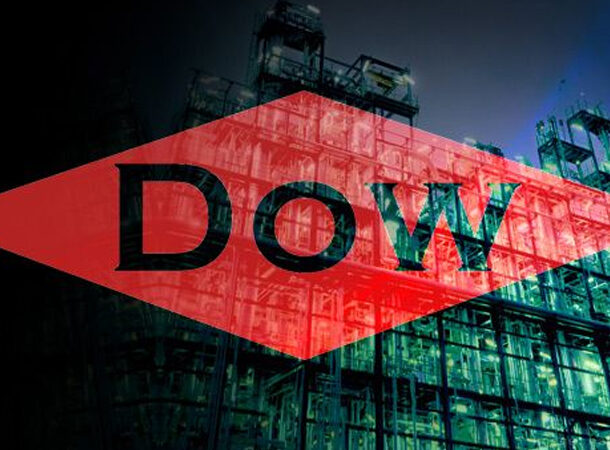 https://www.history.com/topics/vietnam-war/agent-orange-1
https://www.history.com/topics/vietnam-war/agent-orange-1 Throughout history, the chemical industry has been plagued by scandals, but the dark legacy of the Union Carbide Corporation pales compared to Dow Chemical. During the Vietnam War, Dow developed Napalm B and Agent Orange, devastating weapons that caused unimaginable destruction and horrific injuries to the people. Agent Orange was a herbicide intentionally deployed to annihilate Vietnam’s jungles and deprive the enemy of resources. Its terrifying consequences went beyond borders, afflicting both Vietnamese and American citizens with cancer, birth defects, and numerous other long-term health issues. Dow Chemical’s history is an example of corporate interests triumphing over human well-being, a fact that forces us to confront the heartbreaking consequences of corporate actions.
Amazon
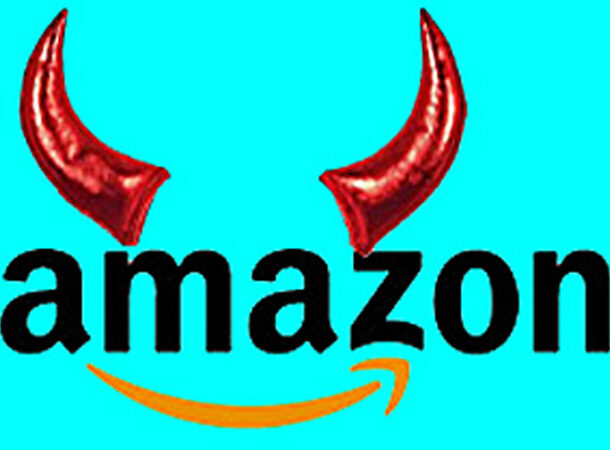 https://www.wired.com/story/ring-doorbell-camera-amazon-privacy/
https://www.wired.com/story/ring-doorbell-camera-amazon-privacy/ Amazon, the online retail giant, has achieved worldwide expansion, penetrating diverse industries and services and establishing a commanding presence in the market. However, their dominance has raised concerns. Amazon has faced criticism for various questionable business practices, including their alleged contribution to the decline of local businesses, services, journalism, and communities globally. Additionally, there are allegations of relying on precarious and low-skilled labor, with reports of workers enduring substandard conditions. They have also received severe criticism for their surveillance through products like Ring doorbells and broader surveillance with Alexa devices; and the fact that they provided technology to military and intelligence agencies with questionable human rights records, including involvement in family separations at the U.S. border. These concerns have raised profound questions about Amazon’s business practices and, in fact, their lack of accountability.
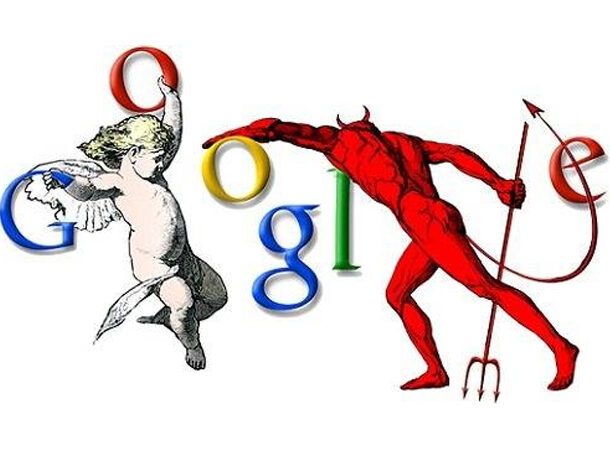 https://www.nbcnews.com/tech/tech-news/google-s-project-dragonfly-censored-search-engine-triggers-protests-n960121
https://www.nbcnews.com/tech/tech-news/google-s-project-dragonfly-censored-search-engine-triggers-protests-n960121 It’s truly remarkable how a company that once championed the motto “Don’t be evil” transformed into an unstoppable information highway. The abandonment of the famous slogan in 2015 speaks volumes. Much like its counterparts, Google only yields to concerns when confronted with external pressure from the media or its employees. The instances of employees thwarting plans for a Pentagon drone A.I. program and a censored Chinese search engine definitely demonstrate a stark departure from their previous “do-gooder image”. With its vast influence spanning the realms of information, media, advertising, and the mobile phone market (thanks to its Android operating system), Google has even surpassed Facebook in the extent of data it holds about us. Meanwhile, it is diminishing its once-celebrated internal culture of self-critique precisely when the world probably needs it the most. You know what they say – “Power tends to corrupt; absolute power corrupts absolutely.”
Nestlé
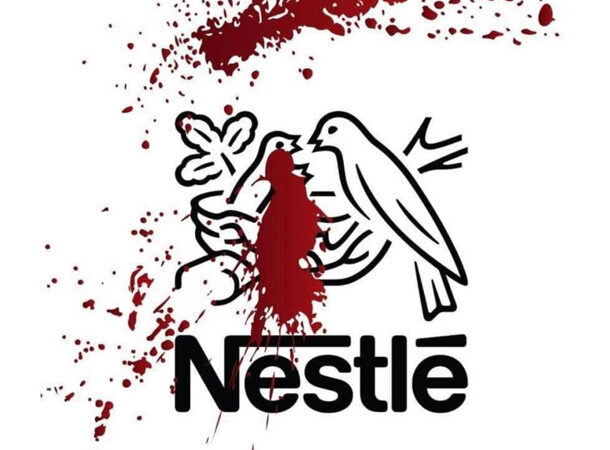 https://www.theguardian.com/global-development/2015/nov/24/nestle-admits-forced-labour-in-seafood-supply-chain
https://www.theguardian.com/global-development/2015/nov/24/nestle-admits-forced-labour-in-seafood-supply-chain When a corporation overtakes literal war criminals in infamy, you know they are truly despicable. Nestlé stands out as the most reviled company worldwide, and it’s not without reason. In 2021, Nestlé faced a lawsuit for its involvement in enabling child slave labor within the cocoa farms of its supply chains. While the Supreme Court eventually dismissed the charges, the company had already admitted to using forced labor in its seafood supply chain in Thailand. Nestlé’s water privatization endeavors, both internationally and domestically, have also drawn significant criticism. Despite severe drought conditions in California, the company has continuously extracted water from the San Bernardino National Forest for years.
Moreover, their recycling claims are hollow, as Nestlé is one of the largest contributors to global plastic waste. As if that weren’t enough, the company engages in collusive practices, purchasing commercial slots on state-controlled media outlets in Belarus and obtaining 15% of its milk from a farm owned by the spouse of Zimbabwe’s most ruthless dictator. But hey, anything to keep up the profits, right?



























